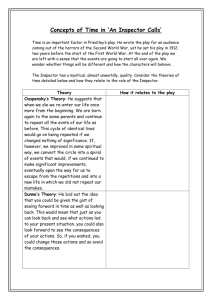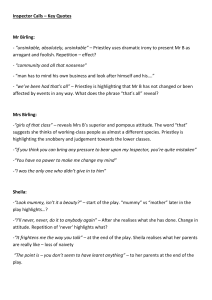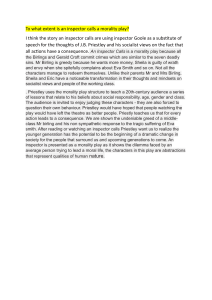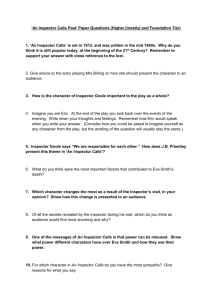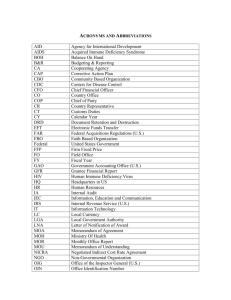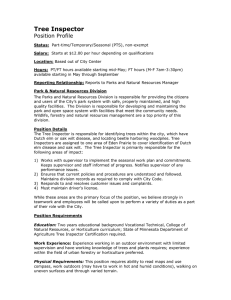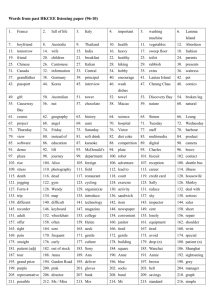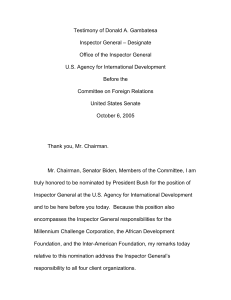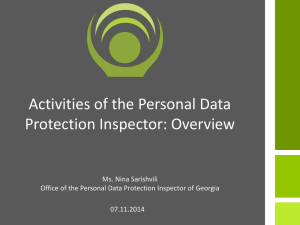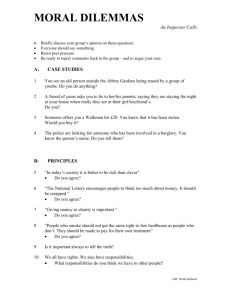Inspector's Final Speech Analysis: An Inspector Calls
advertisement
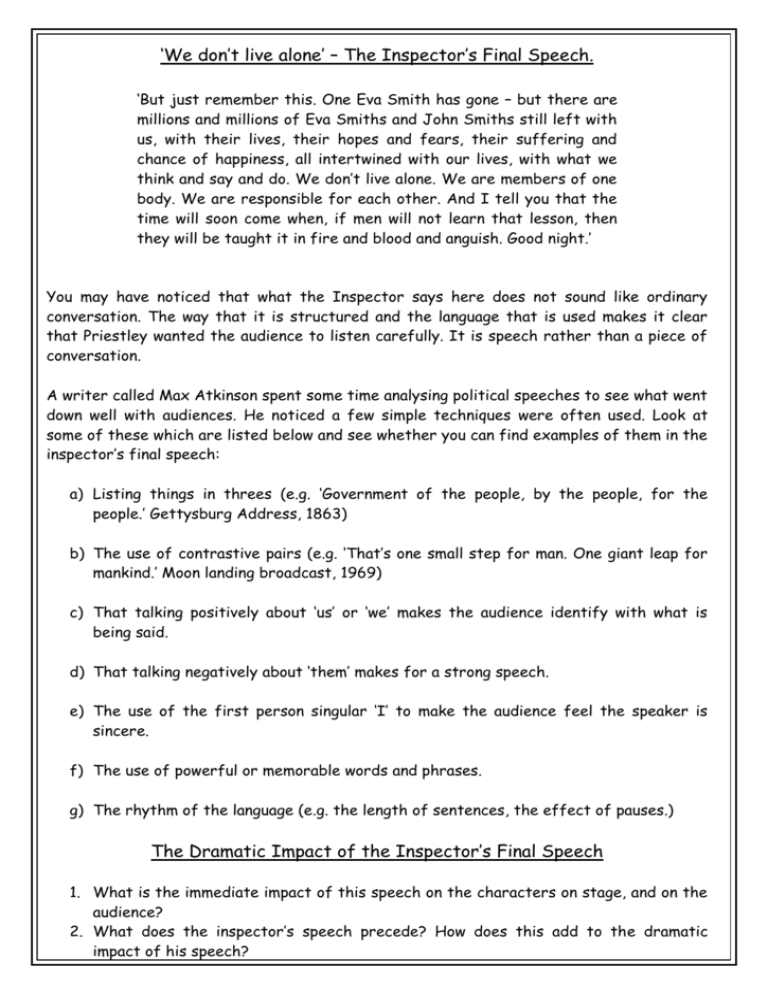
‘We don’t live alone’ – The Inspector’s Final Speech. ‘But just remember this. One Eva Smith has gone – but there are millions and millions of Eva Smiths and John Smiths still left with us, with their lives, their hopes and fears, their suffering and chance of happiness, all intertwined with our lives, with what we think and say and do. We don’t live alone. We are members of one body. We are responsible for each other. And I tell you that the time will soon come when, if men will not learn that lesson, then they will be taught it in fire and blood and anguish. Good night.’ You may have noticed that what the Inspector says here does not sound like ordinary conversation. The way that it is structured and the language that is used makes it clear that Priestley wanted the audience to listen carefully. It is speech rather than a piece of conversation. A writer called Max Atkinson spent some time analysing political speeches to see what went down well with audiences. He noticed a few simple techniques were often used. Look at some of these which are listed below and see whether you can find examples of them in the inspector’s final speech: a) Listing things in threes (e.g. ‘Government of the people, by the people, for the people.’ Gettysburg Address, 1863) b) The use of contrastive pairs (e.g. ‘That’s one small step for man. One giant leap for mankind.’ Moon landing broadcast, 1969) c) That talking positively about ‘us’ or ‘we’ makes the audience identify with what is being said. d) That talking negatively about ‘them’ makes for a strong speech. e) The use of the first person singular ‘I’ to make the audience feel the speaker is sincere. f) The use of powerful or memorable words and phrases. g) The rhythm of the language (e.g. the length of sentences, the effect of pauses.) The Dramatic Impact of the Inspector’s Final Speech 1. What is the immediate impact of this speech on the characters on stage, and on the audience? 2. What does the inspector’s speech precede? How does this add to the dramatic impact of his speech?
